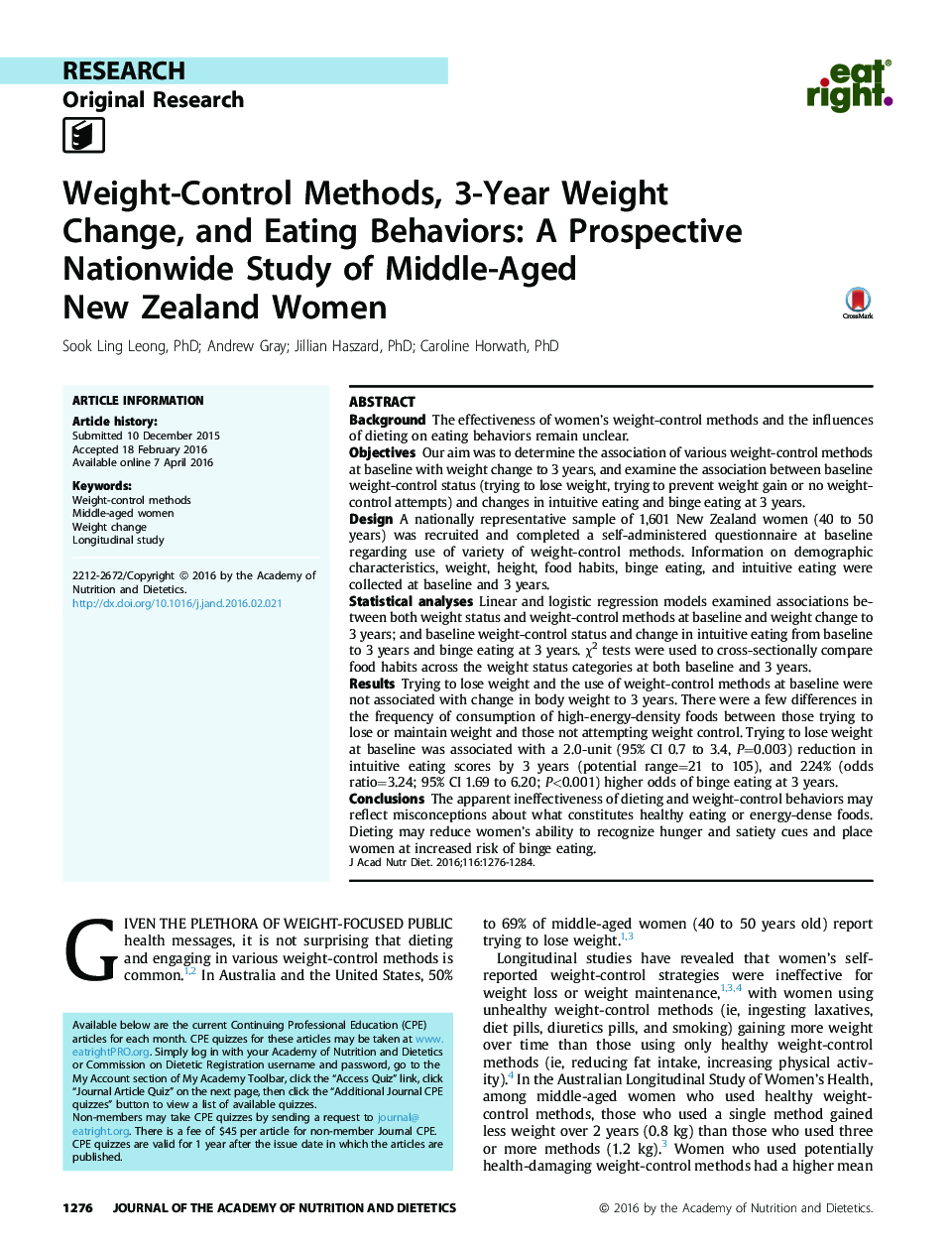| کد مقاله | کد نشریه | سال انتشار | مقاله انگلیسی | نسخه تمام متن |
|---|---|---|---|---|
| 2653049 | 1564034 | 2016 | 9 صفحه PDF | دانلود رایگان |
BackgroundThe effectiveness of women’s weight-control methods and the influences of dieting on eating behaviors remain unclear.ObjectivesOur aim was to determine the association of various weight-control methods at baseline with weight change to 3 years, and examine the association between baseline weight-control status (trying to lose weight, trying to prevent weight gain or no weight-control attempts) and changes in intuitive eating and binge eating at 3 years.DesignA nationally representative sample of 1,601 New Zealand women (40 to 50 years) was recruited and completed a self-administered questionnaire at baseline regarding use of variety of weight-control methods. Information on demographic characteristics, weight, height, food habits, binge eating, and intuitive eating were collected at baseline and 3 years.Statistical analysesLinear and logistic regression models examined associations between both weight status and weight-control methods at baseline and weight change to 3 years; and baseline weight-control status and change in intuitive eating from baseline to 3 years and binge eating at 3 years. χ2 tests were used to cross-sectionally compare food habits across the weight status categories at both baseline and 3 years.ResultsTrying to lose weight and the use of weight-control methods at baseline were not associated with change in body weight to 3 years. There were a few differences in the frequency of consumption of high-energy-density foods between those trying to lose or maintain weight and those not attempting weight control. Trying to lose weight at baseline was associated with a 2.0-unit (95% CI 0.7 to 3.4, P=0.003) reduction in intuitive eating scores by 3 years (potential range=21 to 105), and 224% (odds ratio=3.24; 95% CI 1.69 to 6.20; P<0.001) higher odds of binge eating at 3 years.ConclusionsThe apparent ineffectiveness of dieting and weight-control behaviors may reflect misconceptions about what constitutes healthy eating or energy-dense foods. Dieting may reduce women’s ability to recognize hunger and satiety cues and place women at increased risk of binge eating.
Journal: Journal of the Academy of Nutrition and Dietetics - Volume 116, Issue 8, August 2016, Pages 1276–1284
